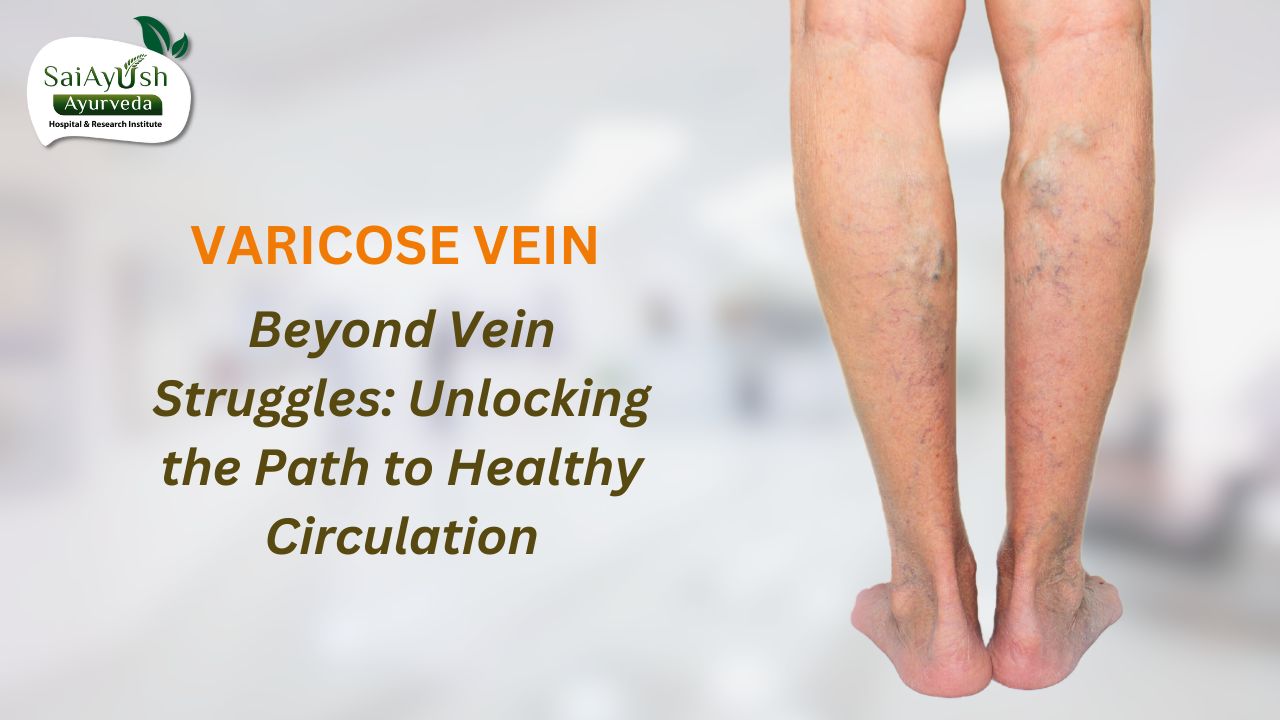Welcome to my blog post on varicose veins and their management using Ayurveda. In this article, I will provide you with a comprehensive understanding of varicose veins, including the causative factors, who is at risk, and the signs and symptoms to watch out for. We will explore the Ayurvedic perspective on varicose veins and discuss the various treatment options available, both internal and external. Finally, I will guide you on how to effectively manage varicose veins using Ayurvedic principles. So, let’s dive in!
Understanding Varicose Veins
Varicose veins are swollen, twisted veins that often appear bluish or purplish in color. They typically occur in the legs and can be both unsightly and uncomfortable. These veins occur when the valves in the veins become weak or damaged, causing blood to pool and the veins to enlarge. Varicose veins are a common condition that affects both men and women.
Causative Factors of Varicose Veins
Several factors contribute to the development of varicose veins. These include:
- Family history: If your parents or close relatives have varicose veins, there is a higher chance of you developing them.
- Age: The risk of varicose veins increases with age as the veins naturally lose their elasticity.
- Gender: Women are more prone to varicose veins, especially during pregnancy and menopause.
- Prolonged standing or sitting: Occupations that involve long periods of sitting or standing can increase the risk of developing varicose veins.
- Obesity: Excess weight puts additional pressure on the veins, making them more susceptible to damage.
Who is at Risk?
While varicose veins can affect anyone, certain individuals are at a higher risk. These include:
- Women who have had multiple pregnancies.
- People with a family history of varicose veins.
- Individuals who are overweight or obese.
- Those who have a sedentary lifestyle or sit or stand for extended periods.
- People with a history of blood clots or vein-related conditions.
Recognizing the Signs and Symptoms
It’s important to be aware of the signs and symptoms of varicose veins to seek timely treatment. Common symptoms include:
- Bulging, twisted veins that are visible under the skin
- aching or heavy feeling in the legs, especially after prolonged periods of standing or sitting.
- Swelling, throbbing, or cramping in the legs.
- Skin irritation or itching near the affected veins.
- Long-term standing or sitting worsens discomfort.
Ayurvedic Concept of Varicose Veins
According to Ayurveda, varicose veins result from an imbalance in the Pitta and Kapha doshas. Pitta represents heat, and Kapha represents stability. When these doshas are imbalanced, it can lead to poor circulation and weakened vein walls, resulting in varicose veins. Ayurveda aims to restore the balance of these doshas through natural remedies and lifestyle modifications.
Treatment Options in Ayurveda
Ayurveda offers both internal and external medication for the treatment of varicose veins.
Internal Medication
- Triphala is a combination of three fruits known for their detoxifying and rejuvenating properties.
- Guggulu is a resin extract that has both analgesic and anti-inflammatory properties.
- Thikthakam kashaya
External Medication
- Herbal oils: Massaging the affected area with oils like sahacharadi tailam or Mahanarayana oil can help improve blood circulation and reduce inflammation.
- Herbal compress: Applying a warm compress infused with herbs like neem or turmeric can provide relief from pain and swelling.
- Rakthamokshana (bloodletting therapy), which helps eliminate the toxins in the blood,
Managing Varicose Veins with Ayurveda
In addition to medication, Ayurveda emphasizes the importance of lifestyle modifications for managing varicose veins. Here are some tips:
- Regular exercise: Engage in low-impact exercises like walking, swimming, or yoga to improve blood circulation.
- Elevate your legs: Elevate your legs above heart level whenever possible to reduce swelling.
- Maintain a healthy weight: Shedding excess weight can alleviate pressure on the veins.
- Wear compression stockings: Compression stockings can provide support to the veins and prevent blood from pooling.
Conclusion Varicose veins can be effectively managed using Ayurvedic principles. By understanding the causative factors, recognizing the signs and symptoms, and adopting Ayurvedic treatment options, you can find relief from varicose veins and improve your overall well-being. Remember to consult with an Ayurvedic practitioner to personalize your treatment plan. Take care of your veins, and embrace a healthier, vein-friendly lifestyle!
Discover the healing power of Ayurveda with our latest article at Sai Ayush Ayurveda Hospitals! Dive into the age-old wisdom that can rejuvenate your body and mind. Click here to read more:



0 Comments